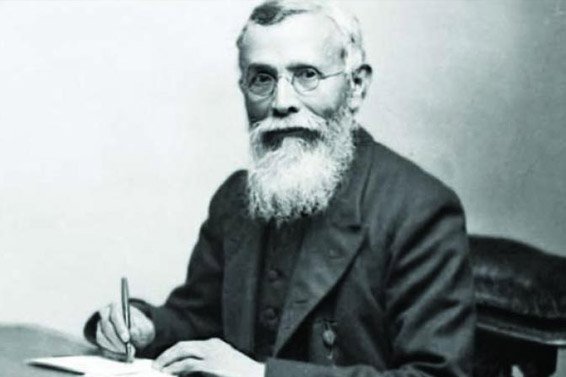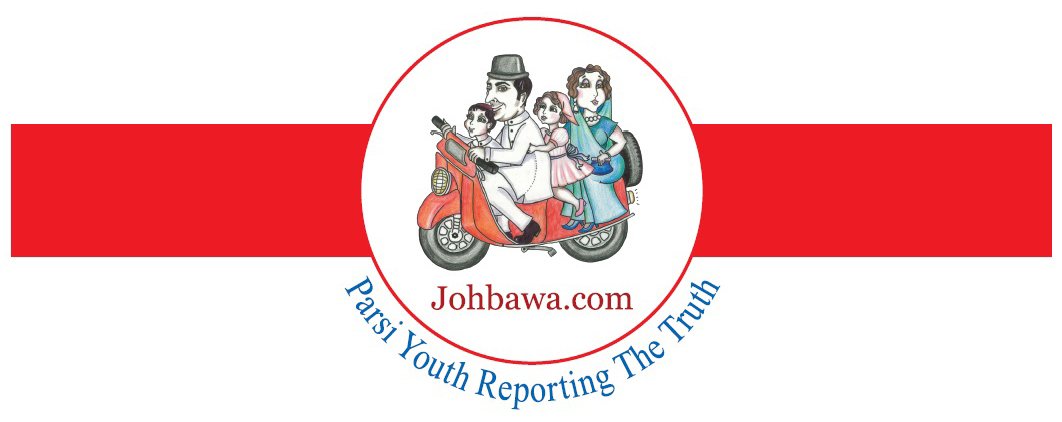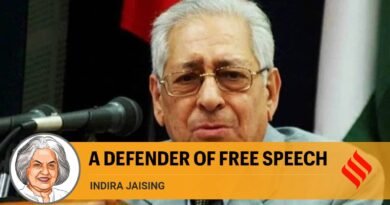Dadabhai Naoroji: The grand old man of India & pre-Gandhian freedom fighter
Dadabhai Naoroji, in the opinion of this writer, can certainly be counted as one of the three greatest Indians of the pre-Gandhi era.
Let us always remember that we are all children of our mother country. Indeed, I have never worked in any other spirit than that I am an Indian, and owe duty to my country and all my countrymen. Whether I am a Hindu, a Mohammedan, a Parsi, a Christian, or any other creed, I am above all an Indian. Our country is India, our nationality is Indian.”
 These inspiring words were spoken by Dadabhai Naoroji, the second president of the Indian National Congress (INC) at Lahore where he was presiding over a session of the INC for the second time. Earlier, he was president of the INC at its second session in Kolkata (then Calcutta) in 1886 and, later, for the third time again in Kolkata in 1906.
These inspiring words were spoken by Dadabhai Naoroji, the second president of the Indian National Congress (INC) at Lahore where he was presiding over a session of the INC for the second time. Earlier, he was president of the INC at its second session in Kolkata (then Calcutta) in 1886 and, later, for the third time again in Kolkata in 1906.
Dadabhai was born in Bombay (now Mumbai) on September 4, 1825 in a priestly Parsi family, being the only child of his mother Manekbai and father, Naoroji Palaji Dordi who had migrated from Navsari (Gujarat) to Mumbai. A brilliant student, Dadabhai, after passing the matriculation examination, joined the famed Elphinstone College, Bombay and graduated from there in 1845, winning many prizes and scholarships. On the completion of his college career Dadabhai was appointed assistant professor at the Elphinstone College and awarded the honorary degree of LL.D by Bombay University.
As a devoted Zoroastrian, the religion he was born into, he learnt that one should be pure in thought, speech and action. He also read about the lives of many great men in world history which inspired him to think that he owed a debt to society. He decided to pay back the debt by devoting himself to the service of the people. He looked beyond his profession of teaching and felt the need for reform in society. He started schools to impart education to women and societies to provide young people with opportunities to discuss various literary, scientific and social subjects. He also began a Gujarati weekly named Rast Goftar (Truth Teller) to spread his ideas in the city of Mumbai where he became famous as a pioneer of social reform who was regarded as “the promise of India” by his fellow professors.
In 1855, Dadabhai went to England to work as a partner in the commercial firm of Cama and Co. This was the first Indian firm to be founded in London. But his principles of putting ethics and commercial morality above business interests made it difficult for his partners to deal with him and Dadabhai was forced to leave the firm. He started his own company, which initially did very well, but soon ran into debt helping his friends in financial distress. Dadabhai, however, managed to overcome his financial problem as he also worked as a professor of Gujarati in the University College, London. He utilised his presence in England to help the people of India by voicing their grievances under British rule. In 1866, he founded the East India Association, London to promote understanding and friendship between the peoples of India and England. Both Indians and Englishmen became members of this association through which Dadabhai tried to educate the British public regarding the problems being faced by Indians. It was due to his efforts that Indians were given the opportunity to compete in the Civil Service examinations. Dadabhai was the first Indian to raise before the British public how wealth was being drained from India to England and that the cause of India’s poverty was British rule.
Dadabhai returned to India in 1869 (the year Gandhi was born). He toured the country and delivered lectures about the objects and work of the East India Association in England. He was honoured by the citizens of Mumbai for his services rendered in London. In July 1875, Dadabhai was elected as a member of the Municipal Corporation, Bombay, and in January 1885, became the vice president of the Bombay Presidency Association which had become one of the precursors of the Indian National Congress that was founded on December 28, 1885. Dadabhai was thus not only one of the leading founder-members of the INC but also one of those visions that gave birth to the idea of India’s foremost political organisation. Dadabhai had an earnest desire to become a member of the British Parliament, because he wanted to sit there as a true representative of the people of India and ventilate their grievances to secure justice for his countrymen. He failed in his first attempt, but ultimately succeeded in becoming a member of the House of Commons in 1892 — the first Indian to be elected to the British Parliament. It was an occasion for great rejoicing in India. He was also the first Indian to sit on a Royal Commission appointed to look into the financial hardships being faced by the people in British India.
After presiding over the Lahore session of the INC in 1893, Dadabhai was specially invited to preside over its Calcutta session in 1906 when the Congress was facing a vertical split between moderates and extremists. It was in this session that for the first time a demand was raised for Swaraj, or self-governance.
It was a historic session which opened with universal prayers and the singing of Vande Mataram. The resolutions passed in the session included a demand for the reversal of the partition of Bengal and for self-government. The slogan of Swaraj was mentioned for the first time by Dadabhai Naoroji. He appealed to the people to remain united and work hard to attain Swaraj. Now an old man, he was referred to as “The Grand Old Man of India.”
Dadabhai was a staunch believer in constitutional methods and belonged to the school of moderates. Although he believed in Swadeshi he was not against the use of machines for organising key industries in the country. He inspired Tata to raise Indian capital for his iron and steel industries. A devout Zoroastrian, but Catholic in outlook, he did not believe in the restrictions of caste, creed and gender. He was one of the earliest pioneers of women’s education and equal rights for them. Amongst his close friends were A.O. Hume, William Wedderburn, Badruddin Tyabji, K.T. Telang and Gopal Krishna Gokhale who considered Dadabhai, 43 years older than him, as his hero.
This great hero of the initial phase of India’s Freedom Struggle passed away on June 30, 1917 at the age of 91 after nearly seven decades of selfless service to the country. Alongwith Tilak and Gokhale, who followed him, though with methods at variance with each other, Dadabhai, in the opinion of this writer, can certainly be counted as one of the three greatest Indians of the pre-Gandhi era of the Independence Movement. A befitting tribute was paid to him by Pandit Jawaharlal Nehru in Parliament while he unveiled a portrait of Tilak in Central Hall in 1956: “We have, to my right here, a picture of Dadabhai Naoroji, in a sense the Father of the Indian National Congress. We may perhaps in our youthful arrogance think that some of these leaders of old were very moderate, and that we are braver because we shout more. But every person who can recapture the picture of old India and of the conditions that prevailed, will realise that a man like Dadabhai was, in those conditions, a revolutionary figure.”





